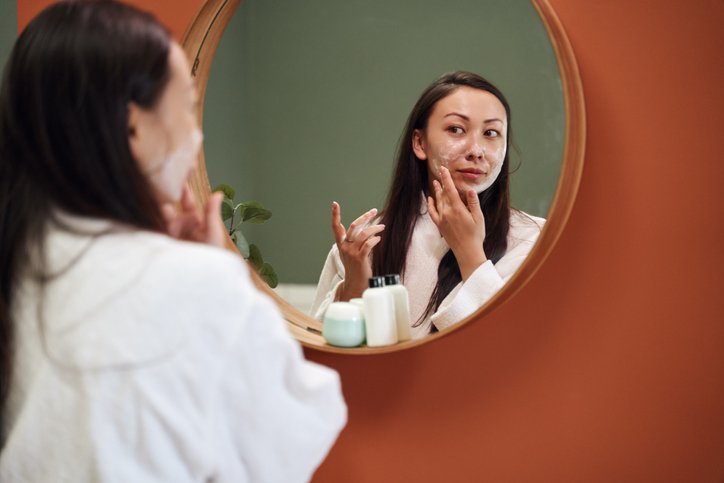
Despite decades of warnings on the health hazards of skin-whitening products and international bans on cosmetics containing mercury, a naturally occurring chemical element often found at toxic levels in pigment-altering creams, more than a quarter of people worldwide attempt to lighten their skin at some point in their lives. And the demand continues to rise, with this $8.8 billion industry projected to reach $11.8 billion by 2026, according to market research firm Global Industry Analysts. Recently the FDA took a stronger stand against these products, launching its Skin Facts! Initiative to alert consumers about the potential harm caused by ingredients such as mercury and hydroquinone, a skin-lightening agent that is not approved by the FDA for over-the-counter sale.
More than a quarter of people worldwide attempt to lighten their skin at some point in their lives. Share on XWhile it’s important to keep in mind the serious side effects and health problems caused by these ingredients, which range from rashes and possible permanent discoloration of skin to damaged eyes, lungs, and kidneys, we also need to be talking about why these products are so popular in the first place. With growing sales in Asia, the Middle East, and Africa, and the FDA pointing out how these lightening products are often sold in shops that target BIPOC communities, the global trend of striving for lighter skin clearly speaks to the history of imperialism and colonization that lingers in both our psyches and our buying habits. “Apart from lightening dark spots on the skin, lightening skin is often [indicative] of societies grappling with internalized racism and colorism,” notes Michael Bender, director of the Mercury Policy Project, in Medical News Today.
With growing sales in Asia, the Middle East, Africa, and shops that target BIPOC, the global trend of striving for lighter skin speaks to the history of imperialism and colonization that lingers in our psyches and buying habits. Share on XOne way to curb sales of these dangerous products is to lift up insights by thought leaders in this space, such as Amira Adawe, founder and executive director of the Beautywell Project, a nonprofit aimed at ending skin-whitening practices. In an interview on Beautywell’s website, Adawe shares:
One way to curb sales is to lift up leaders, such as Amira Adawe, founder of the Beautywell Project, a nonprofit ending skin-whitening, and Leah Donnella, editor on NPR's Code Switch who writes about decolonizing beauty. Share on X“Some of these companies have been manufacturing these products for more than 40 years. And so, for them to really stop altogether, it’s going to take many, many years. And that is why this issue is not a one-approach issue; it has to have multiple approaches. Healing communities, educating communities … dealing with governments, to regulate these products, but also teaching these cosmetic companies their social responsibility.”
Leah Donnella, who has written about decolonizing beauty as an editor on NPR’s Code Switch team, shares this insight in one of her articles: “There’s a reason that so many people still think of an ‘all-American beauty’ as a thin, blonde, blue-eyed white woman. It wasn’t until 1940 that the rules were changed to allow women of color to enter the Miss America pageant.” She goes on to add, “Any way you go about it, the process of decolonizing your beauty routine is probably going to result in a lot of people being uncomfortable with your appearance. It’s also the only way beauty norms have a chance of changing. So you have to know your politics. What are you trying to say with your beauty routine?”
Both Adawe and Donnella will be appearing with me on a panel on decolonizing beauty hosted by Macalester College’s 29th Annual International Roundtable, “On the (Im)Possibilities of Decolonizing Knowledge and Power.” To see the full roster of speakers and topics, visit this website.


















